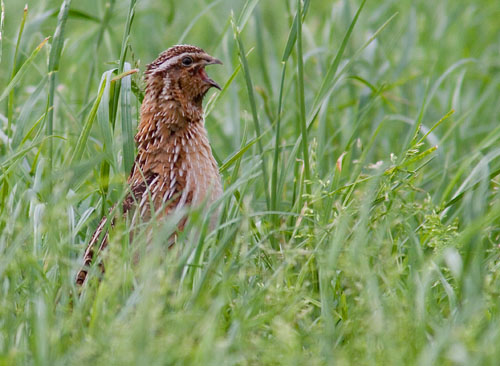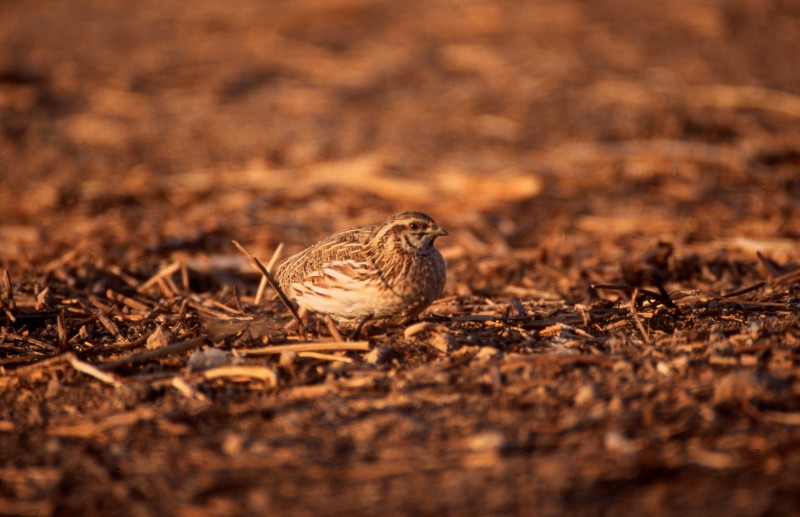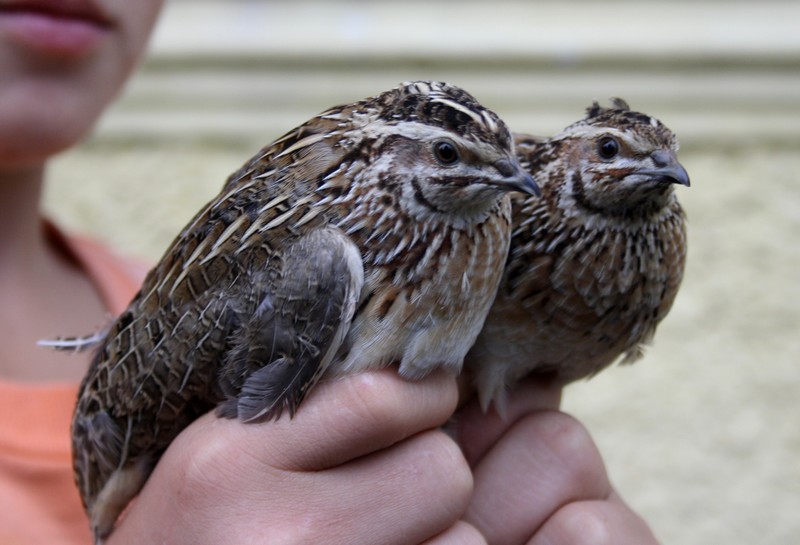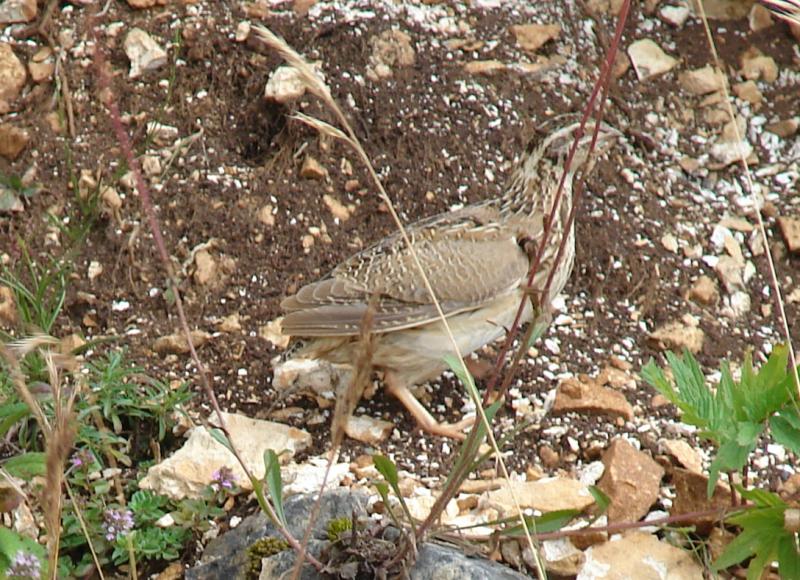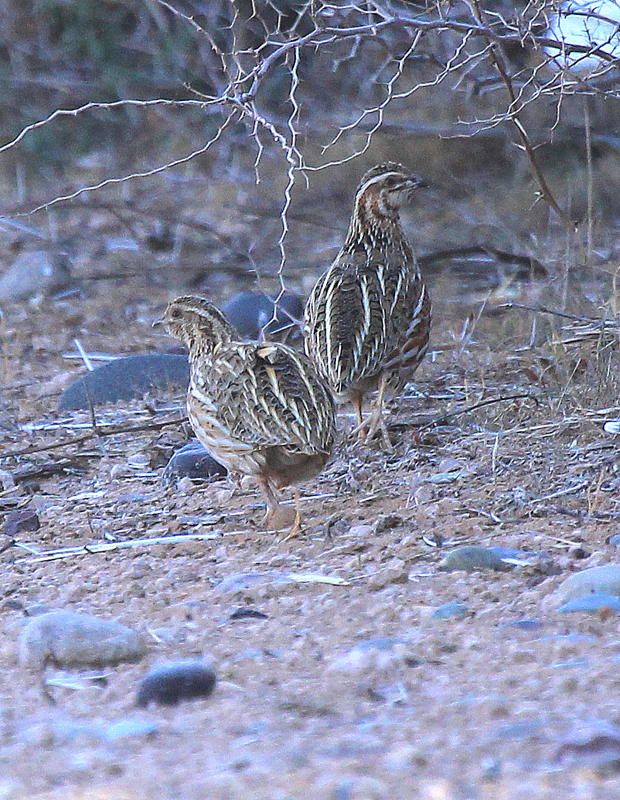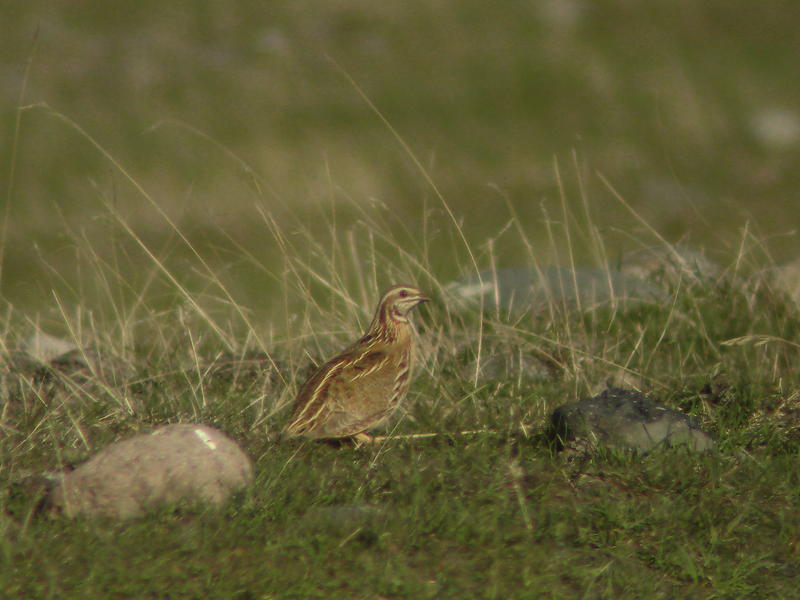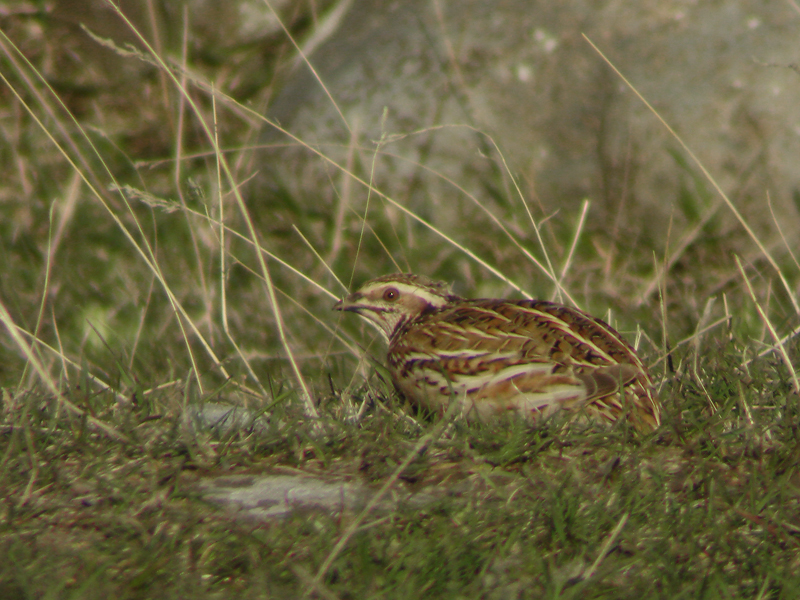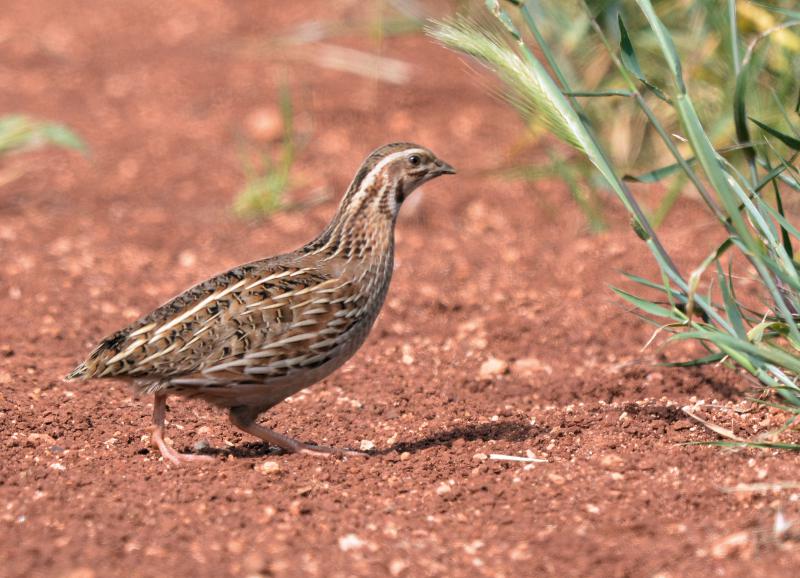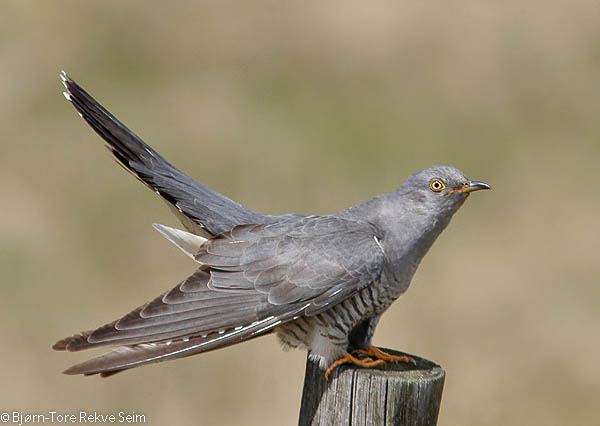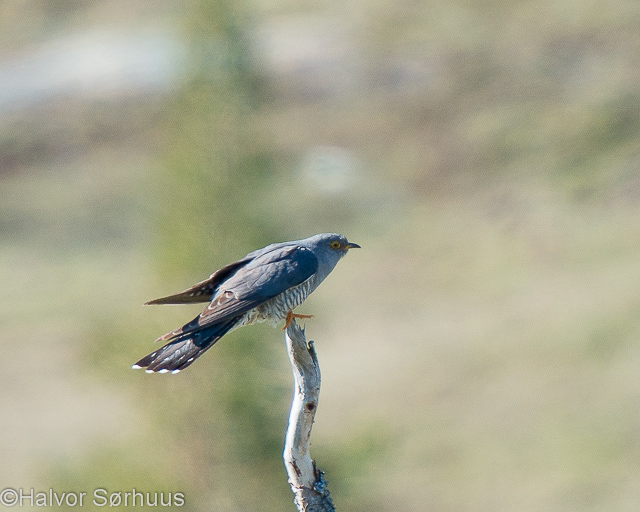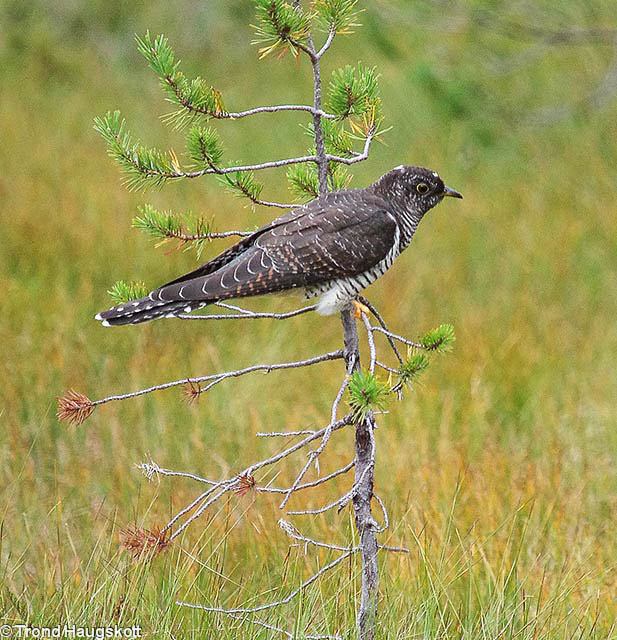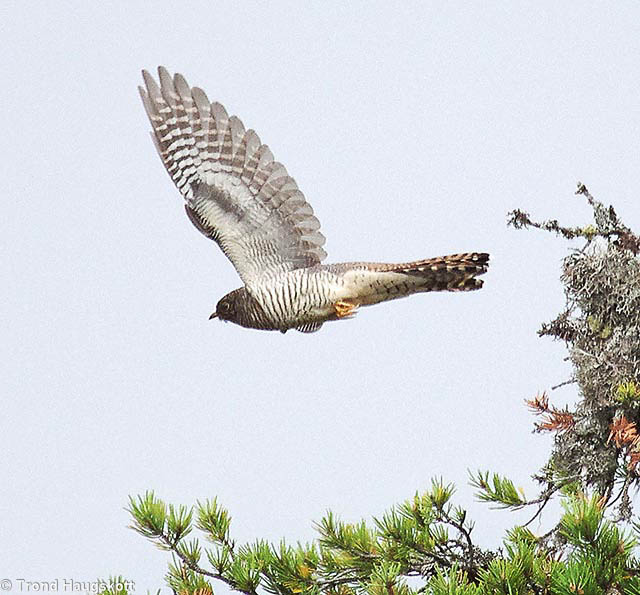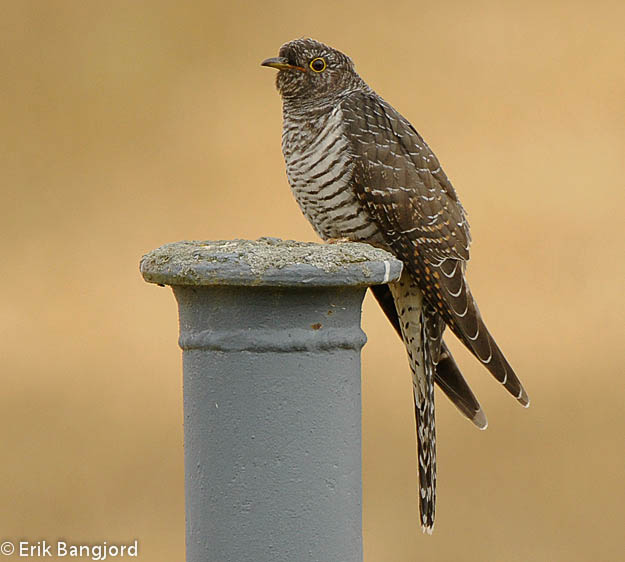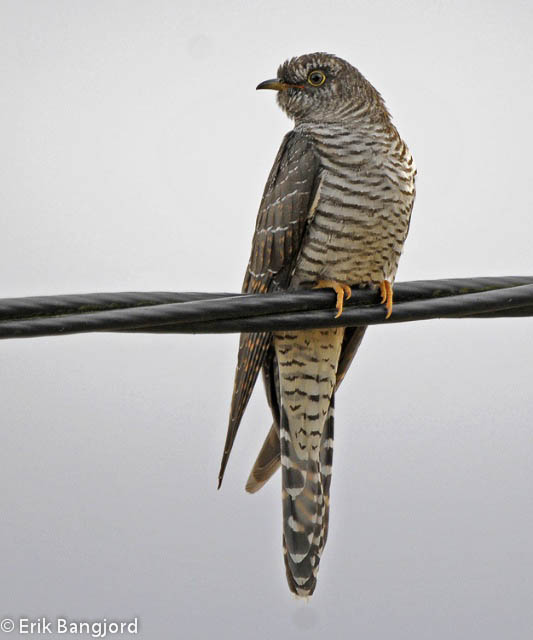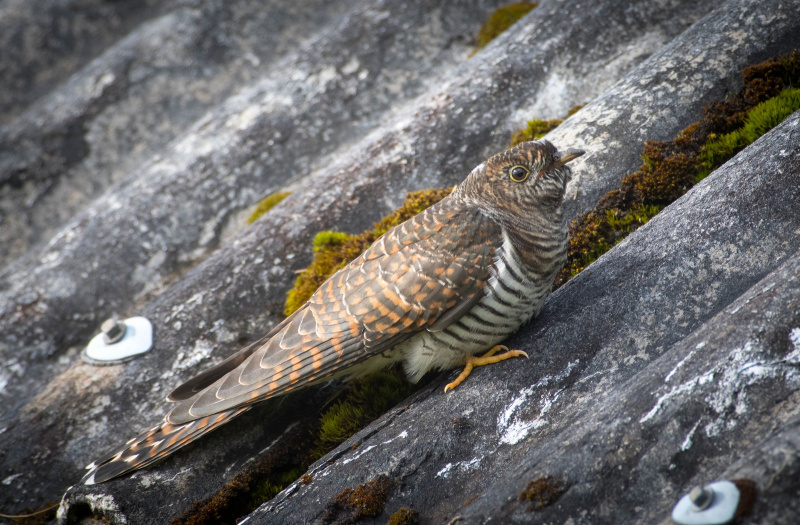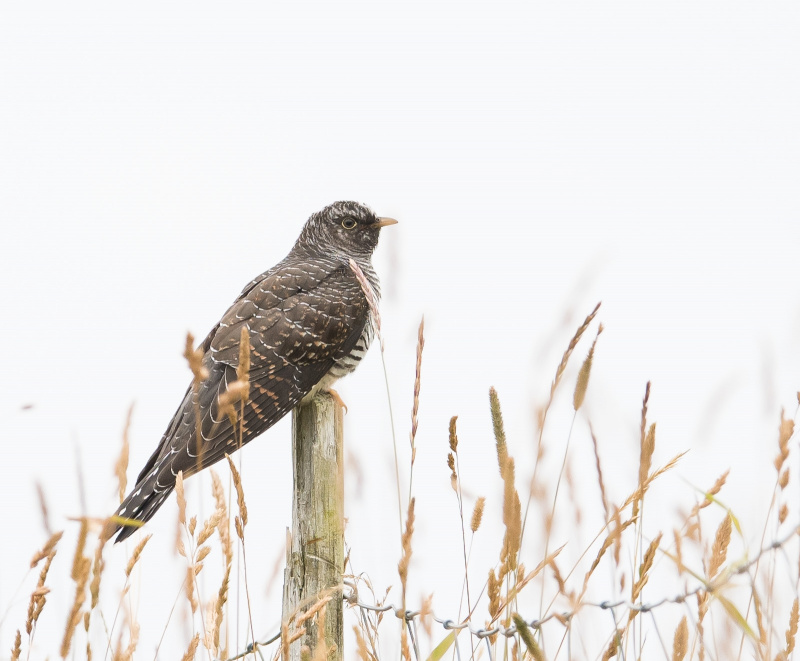Quail (Coturnix coturnix)
Cuckoo (Cuculus canorus)
Seldom seen, often heard. Very small, compact bird with secretive behaviour. Heavily striated brown upperparts and paler belly. Males with black throat or black throat-band. Only the male shows different pale or rufous morphs. Appears long-winged when flying, with a straight and low line of flight.
Sound:Song a very characteristic, short, tri-syllabic whistling, with each syllable ending with a sharp rise in pitch "weet weet-weet". The two last syllable linked together. Other sounds: A nasal disyllabic mewing "mau-au", and a wader-like rolling "wreee".
Song:
Distribution:
Xeno-canto: map
Ecology:Birdlife ecology
Links:
Observation.org Latest observations
Image search Flickr NB! May give other species
CCSlate grey upperparts with barred white underparts. Female and juvenile sometimes rufous brown. Male with defined grey breast in contrast to barred white belly, female with diffusely barred chest and throat. Yellow iris and thin bill. Wings and tail long and slender, often giving the impression of a small falcon. Often perches with a more horizontal posture than hawks or falcons, i.e. tail pointing backwards and not towards the ground, and drooping wings. In flight wings are not raise above horizontal plane, and it seldom glides like raptors.
Sound:Song: the well known disyllabic "cuck-coo" with emphasis on first note, and the second note a third lower than the first one. Also a harsh "tchaa tchaa", and a bubbly trill, reminiscent of Little Grebe, uttered by the female.
Male:
Distribution:
Wikipedia: map (se also Xeno-canto below)
Ecology:Birdlife ecology
Links:
Observation.org Latest observations
Image search Flickr NB! May give other species
CC
 English
English Albanian
Albanian
 Armenian
Armenian
 Bulgarian
Bulgarian
 Catalan
Catalan
 Croatian
Croatian
 Czech
Czech
 Danish
Danish
 Dutch
Dutch
 Finnish
Finnish
 French
French
 Georgian
Georgian
 German
German
 Greek
Greek
 Hungarian
Hungarian
 Italian
Italian
 Latvian
Latvian
 Lithuanian
Lithuanian
 Macedonian
Macedonian
 Norwegian
Norwegian
 Polish
Polish
 Portuguese
Portuguese
 Romanian
Romanian
 Russian
Russian
 Sami : Lule sami
Sami : Lule sami
 Sami : North sami
Sami : North sami
 Sami : South sami
Sami : South sami
 Scientific names
Scientific names
 Serbian
Serbian
 Spanish
Spanish
 Swedish
Swedish
 Ukrainian
Ukrainian


